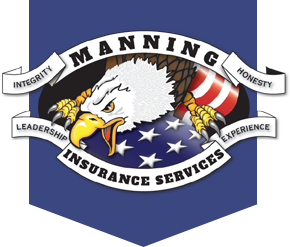Coastal insurance should start with homeowners insurance because it protects what is likely your most valuable asset: your home. The insurance experts at Manning Insurance Services LLC offer plenty of coverage with important protections through your homeowners insurance policy:
- Dwelling coverage: If your home’s physical structure is damaged, this coverage provides repair or replacement.
- Other structures coverage: If other buildings on your property (like a detached garage or shed) are damaged, this coverage provides repair or replacement.
- Personal property coverage: If damage occurs to your personal belongings in your home or elsewhere, this coverage provides repair or replacement. Personal property outside your home may have a lower coverage amount.
- Loss of use coverage: In the event of a covered loss, this coverage provides additional living expenses for you if necessary.
- Liability coverage: If you or a family member damages another’s property or causes injury, this coverage provides personal legal liability protection.
- Medical coverage: If guests are injured on your property, this coverage provides for their medical expenses.
- Extra coverage: For exceptionally valuable items, consider additional coverage.
While homeowners insurance is the first line of defense, you may need and want additional coverage if your home is located on the coast or in a coastal region. With the risk of severe weather from hurricanes and tropical storms, coastal insurance can additionally include wind and hail coverage, flood insurance, and hurricane insurance depending on your needs.
Wind and hail coverage applies through a wind and hail deductible or a named storm deductible, referring to the amount of out-of-pocket expenses you’re responsible for before your coverage begins. A wind and hail deductible is not the same thing as a named storm deductible. A wind and hail deductible applies to all covered losses resulting from any wind and hail damage during any storm or severe weather event. A named storm deductible applies to storms that are named only. Generally, a policy will either have a wind and hail deductible or a named storm deductible, but not both. A policy with a named storm deductible that has a claim filed because of a thunderstorm will have the regular deductible, commonly referred to as the all other perils deductible, applied to the loss.
Since homeowners insurance does not extend to flood damage—whether it’s from tropical storms, hurricanes, or heavy rainfall—use flood insurance to protect your property. Flood insurance may also reimburses your costs for preparing your home for a flood, including buying sandbags, moving furniture, and removing debris after a flood.
Hurricane insurance then helps protect you when a Named Storm damages your home. Contact the experts at Manning Insurance Services LLC to discuss the best options for protecting your most valuable asset.

